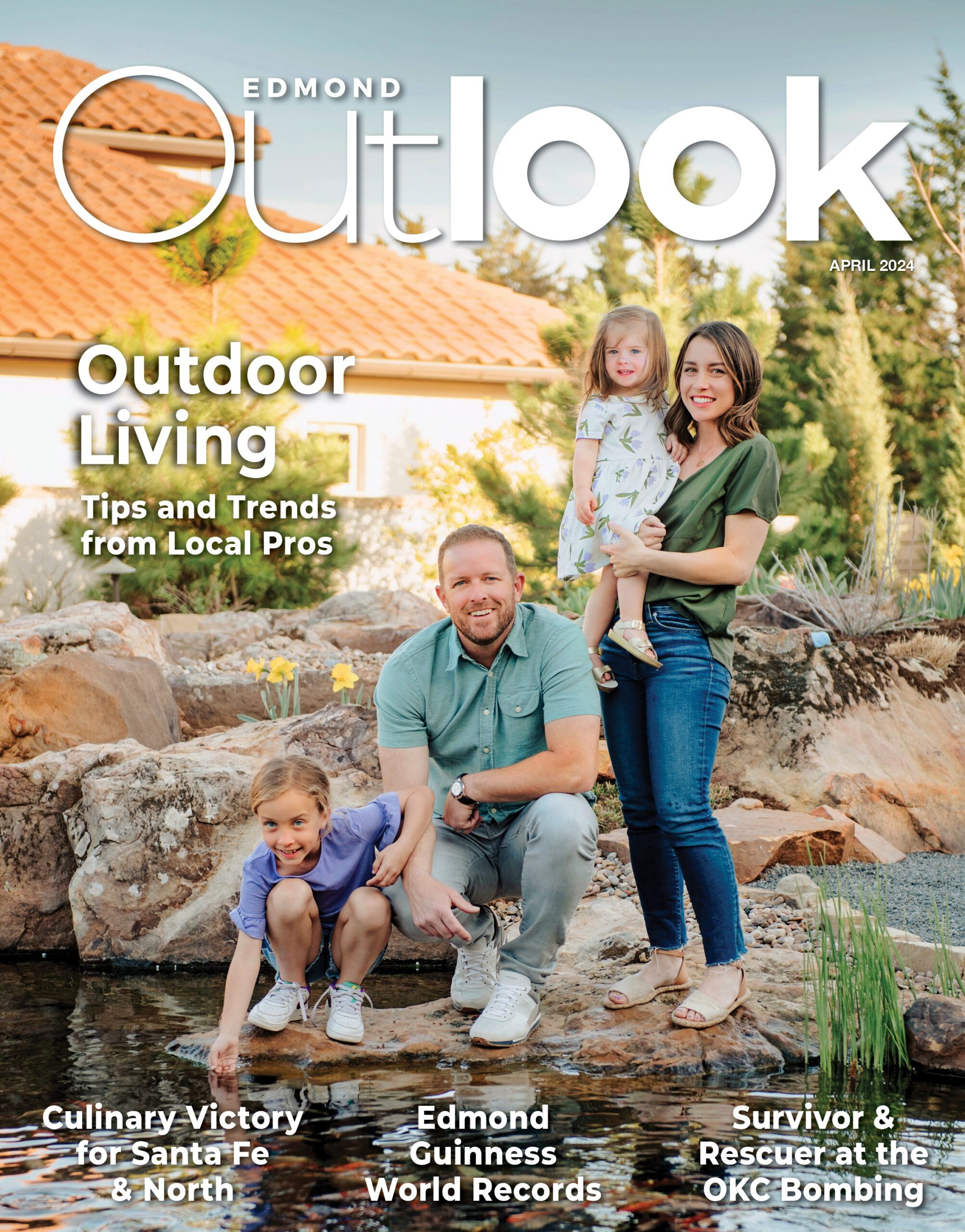Forgetfullness… or Something Else?
Laura Castleberry of Edmond began to notice something wasn’t quite right with her mother, Carolyn Crawley, in 2005.
“Mom started showing signs of real forgetfulness,” Castleberry said. “Not necessarily ‘Where are my car keys?’ but ‘I have these things in my hand, and I don’t know what they’re used for.’”
Crawley and her husband of more than 50 years, Mike, lived in Tulsa at the time – far enough away that Castleberry didn’t see the warning signs of dementia, a cluster of illnesses that manifests in cognitive dysfunction.
“To be honest, my dad didn’t tell me a lot of what was going on,” Castleberry said. “He was trying to hide it from me. So I started visiting more frequently.”
What Castleberry began to see was a different version of the mother she knew. Crawley got lost while driving and began to wander. Housekeeping began to go by the wayside. Crawley, who was a home economics major in school and was known for her wonderful cooking, had stopped cooking altogether.
Signs like these are what Marge Coalman, EdD, counsels adult children and other caregivers to look for if they suspect a person is experiencing some form of age-related dementia. Coalman is Vice President of Wellness and Programs for the Edmond retirement facility, Touchmark at Coffee Creek and a specialist in exercise and physiology of aging.
A number of signs indicate an older person may be experiencing some form of age-related dementia or Alzheimer’s disease.
“They are isolating themselves, because they are aware they can’t remember people’s names,” Coalman says. “They aren’t paying their bills. There may be no good food in the refrigerator. They forget to shop; they forget to eat. They have unopened mail. Even if these signs aren’t there, and you know your loved one pretty well, it’s clear that something’s not right, because they just aren’t the same person.”
Coalman notes it’s also important to have a watchful eye when people come to visit you, because you can notice a decline in the health of a well spouse every time, as they attempt to care for a spouse who is aging. “The well spouse is trying to do everything, and the individual may not realize how much he/she is doing for the other person,” she said.
To help ease the burden on her father, Castleberry suggested her parents move closer to her in the Oklahoma City area. The Crawleys moved into the independent living area of Touchmark at Coffee Creek three years ago. However, Laura soon began to think moving her mother to a program that offered memory care was necessary.
“She began losing a bit of her speech patterns and began exhibiting bizarre behavior,” Castleberry said. “She’d put on four pairs of pants at a time. She got stuck in the elevator and couldn’t figure out how to get out. She started becoming aggressive toward dad. It got to the point that he couldn’t take care of her anymore.”
Carolyn Crawley was diagnosed with Lewy Body Dementia in 2007. The following month her daughter moved her to another center. She’ll move back to Touchmark at Coffee Creek once the community’s new Memory Care building is complete.
“The fact that my parents will be at the same community is huge,” said Castleberry. “Making a decision to place a loved one somewhere is very taxing and emotionally draining. My mother has no idea who I am anymore, and that has been hard. It’s comforting to know that she’ll be right there. “
The Touchmark Memory Care program offers specialized care in an environment specifically designed for people experiencing Alzheimer’s disease or age-related dementia.
“It’s important to note that dementia is not a normal part of aging,” Coalman said. “We all get forgetful. But dementia is abnormal.”
Touchmark at Coffee Creek will host a half-day community workshop on February 3rd on the topic of dementia. This event will be offered to the public at no cost and will present information specifically related to memory care.
“We hope to bring help to families and those who are living with Alzheimer’s disease or other dementia illnesses,” said Jamie Ham, Executive Director, Touchmark at Coffee Creek. “Our goal is to be a resource for family members.”
For more information, call 340-1975 or visit www.edmondmemorycare.com.
Signs to Look for inElderly Parents
Family holiday gatherings or other special occasions can offer great insight to adult children, friends and other family members as to how the aging process — and especially dementia — affects their loved ones’ ability to live independently.
The following signs indicate an older person may be experiencing some form of age-related dementia or Alzheimer’s disease:
• Unpaid bills. Some utilities, subscriptions, and even the garbage service may have been cut off.
• Declining health of not only the individual, but also the spouse or primary caregiver.
• Weight loss or other evidence of malnourishment. People with age-related dementia forget to shop, cook and eat.
• New dents and or other problems with the family vehicle.
• A distinct absence of friends who used to call or come by regularly.
• Exaggerated stress over the demands of the holiday.
• A change in regular habits and routines. They may not go to church, the book club or the neighborhood block party they’ve always attended in the past. They can’t remember or just can’t navigate the social demands of the various settings.
• Unopened mail and/or packages.
• A difference in sleep patterns as their circadian rhythm is greatly disrupted.
• Complete bewilderment at a meal out or a trip to the mall.
• Clutter – and a lot of it. Conversely, they are throwing and/or giving away valuables and even family treasures.
• Not recognize family members who are visiting. At this stage, it is more than time for a move to a protective environment.
It is important to remember that some (or all) of these may be present or not. People with dementia are great actors and can usually rise to the occasion for a brief visit. With assistance and support, family members can look deeper and longer for the telltale signs of Alzheimer’s disease or age-related dementia.
SOURCE: Marge Coalman, EdD, vice president of wellness and programs, Touchmark.


